from 0 review
20 Days / 19 Nights
English, Urdu
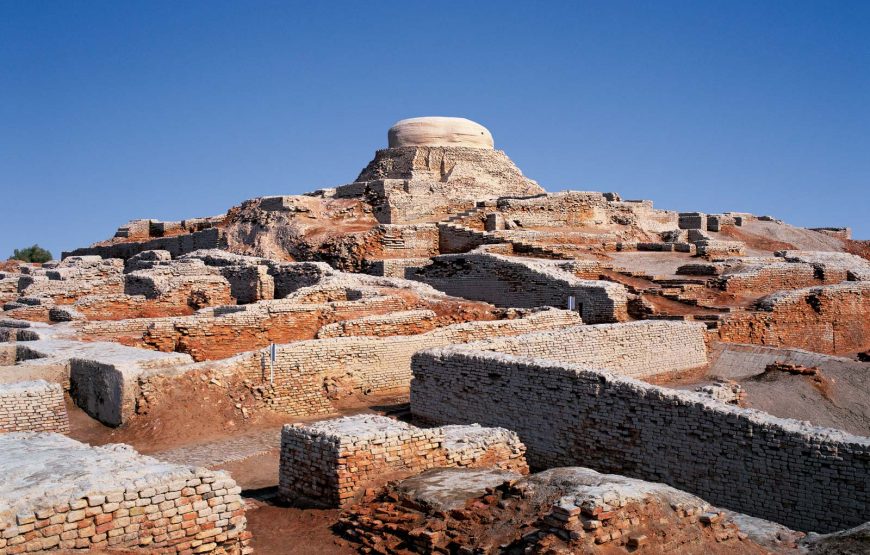
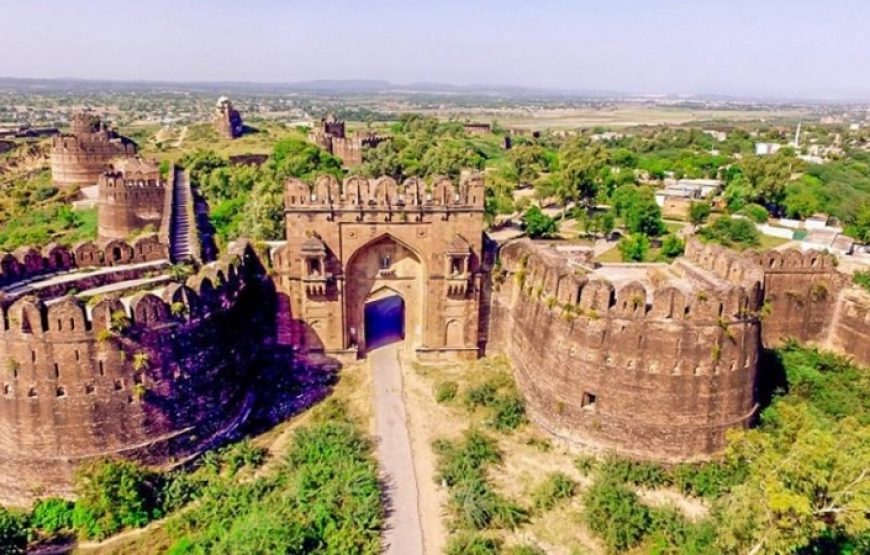
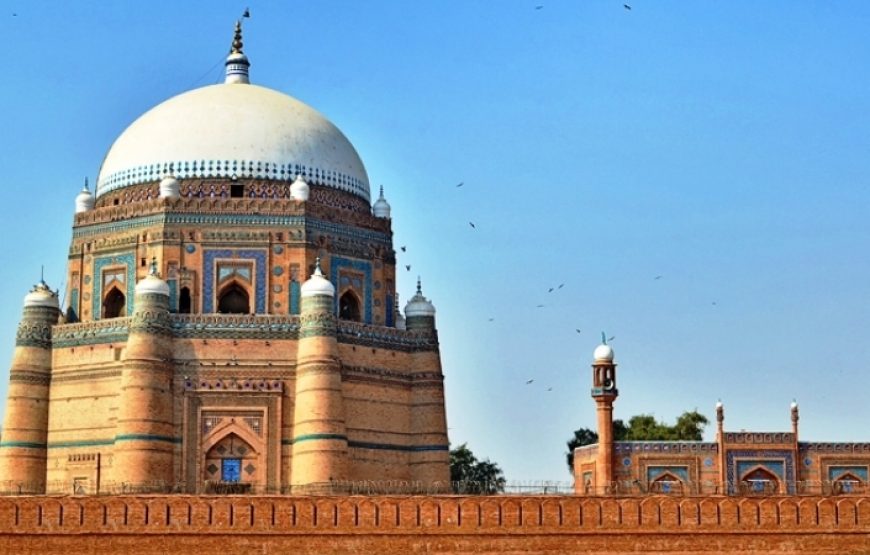
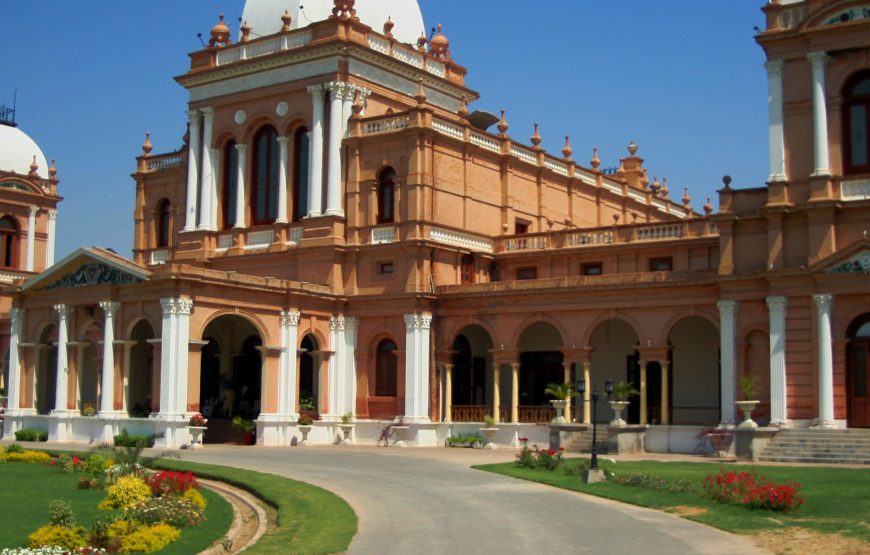
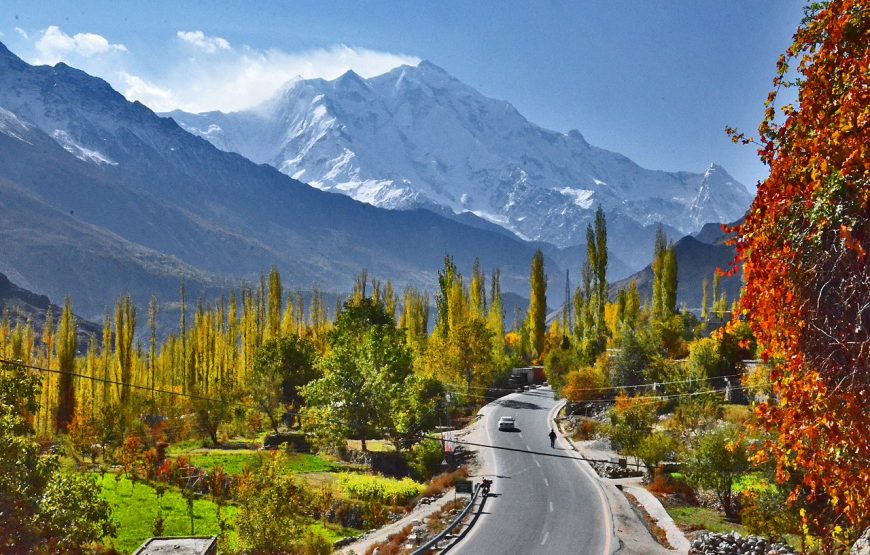
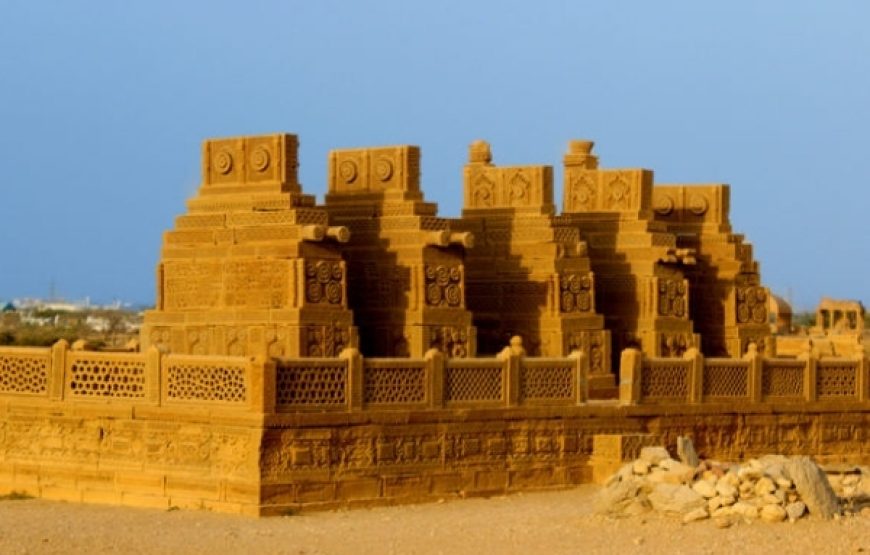
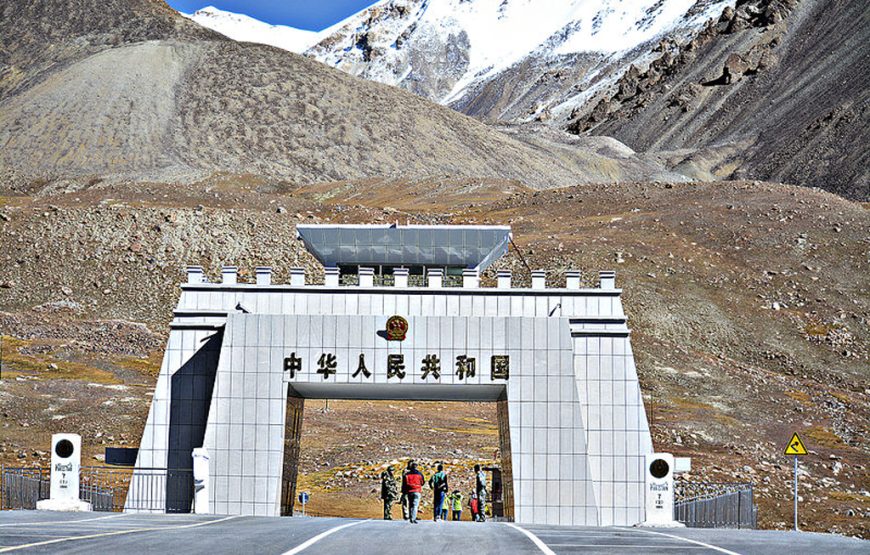
Pakistan, a land bearing the ancient imprints of the world’s oldest civilizations, invites you on a captivating journey through time. From the prehistoric wonders of Mehargarh to the iconic cities of Harappa and Mohenjo-Daro, and from the cultural embrace of Gandhara and Buddhism to the opulence of the Islamic and Mughal eras, each period has left an indelible mark on this region. Notably, the enigma of the Indus Valley Civilization persists, with its language still veiled in mystery.
This tour is an immersive exploration of the diverse ancient civilizations and monuments nestled in the Indus Valley. It spans from the cradle of civilization in Mohenjo-Daro and Harappa to the lesser-known marvels of the Islamic era, including the resplendent Mughal city of Lahore, the cerulean-glazed monuments of Multan and Uch Sharif, the former princely state of Bahawalpur on the fringes of the Cholistan Desert, the formidable desert fortress at Derawar, and the colossal Rohtas Fort. The journey also unveils the extraordinary decorated necropolis at Thatta, a testament to the artistic legacy of bygone eras.
Your odyssey extends to the splendors of northern Pakistan, where the landscapes tell tales of legendary Hunza, the majestic Khunjerab Pass, the historic Gilgit, the rugged terrain of Chilas, and the picturesque Swat Valley. Each valley echoes with the whispers of a time long past, encapsulating the essence of Pakistan’s rich and diverse cultural heritage.
On this expedition, we unravel the layers of time, from the ancient civilizations of the Indus Valley to the modern marvels that grace the landscapes of Pakistan. Let this journey be your gateway to the treasures and tales that have shaped this extraordinary land throughout the ages.
Highlights: Quaid-e-Azam’s Mausoleum, National Museum, Empress Market
Upon arrival in Karachi, Pakistan’s bustling coastal metropolis, meet and greet at the airport followed by a transfer to your hotel. In the afternoon, begin your discovery with a guided visit to key landmarks: pay homage at the mausoleum of Pakistan’s founder, explore centuries of history at the National Museum, and experience colonial-era vibrance at Empress Market.
Highlights: Chaukhandi Tombs, Banbhore Ruins, Makli Hills
Depart for Hyderabad with enriching stops en route. Visit the intricate sandstone tombs at Chaukhandi, explore the ancient seaport of Banbhore tied to early Islamic history, and marvel at Makli Hills, one of the largest necropolises in the world and a UNESCO World Heritage Site. Arrive in Hyderabad and check into your hotel for the night.
Highlights: Pacco Qillo, Sindh Museum, Shah Latif Bhittai's Shrine
Enjoy a full day uncovering Hyderabad's rich Sindhi heritage. Visit the Pacco Qillo (strong fort), immerse in local traditions at the Sindh Museum, and pay respects at the Shrine of Shah Abdul Latif Bhittai, a beloved Sufi poet whose verses still resonate in the region.
Highlights: Kot Diji Fort
Drive to Sukkur, stopping en route at the majestic Kot Diji Fort, perched on a hill overlooking the Indus plains. This 18th-century stronghold predates the colonial era and provides insights into Sindh’s feudal past. Continue to Sukkur for your overnight stay.
Highlights: Mohenjo-Daro, Lansdowne Bridge, Tombs of Rohri
Step into the cradle of civilization with a visit to Mohenjo-Daro, one of the most significant Indus Valley archaeological sites. Later, explore Sukkur’s riverside charm and the tombs at Rohri, steeped in Sindhi Sufi traditions. Return to your hotel in Sukkur.
Highlights: Bhong Mosque, Noor Mahal
Drive to Bahawalpur, stopping to admire the exquisite Bhong Mosque, a masterpiece of mosaic and calligraphy. Continue to Dera Nawab, where the palaces of the former princely state still stand in grandeur. Overnight stay in Bahawalpur.
Highlights: Derawar Fort, Uch Sharif
Embark on a day excursion into the Cholistan Desert to witness the formidable Derawar Fort, its imposing bastions rising from the sands. Later, visit Uch Sharif, known for its blue-tiled Sufi shrines and distinctive Central Asian architecture. Return to Bahawalpur.
Highlights: Shah Rukn-e-Alam, Bahauddin Zakariya, Multan Bazaar
Drive to Multan, renowned for its spiritual legacy and Sufi shrines. Visit the ornate tombs of Shah Rukn-e-Alam and Bahauddin Zakariya, then stroll through the vibrant bazaar filled with handicrafts, camel skin lamps, and traditional sweets.
Highlights: Harappa Ruins, Lahore Fort, Badshahi Mosque
Depart for Lahore, stopping at Harappa, an important Indus Valley site where early urban life once thrived. In the afternoon, explore Lahore’s regal past with visits to Lahore Fort and the magnificent Badshahi Mosque, both testaments to Mughal glory.
Highlights: Shalimar Gardens, Lahore Museum, Wahga Border
Spend the morning exploring Lahore's Mughal gardens and museums. In the evening, head to the Wahga Border to witness the stirring flag-lowering ceremony—a display of patriotism and pageantry shared between Pakistan and India. Overnight in Lahore.
Highlights: Rohtas Fort
Drive to the capital, stopping to explore the massive Rohtas Fort, a UNESCO World Heritage Site built by Sher Shah Suri. Its vast defensive walls and gates are an outstanding example of early Islamic military architecture.
Highlights: Taxila Museum, Buddhist Sites
Begin your journey north with a visit to Taxila, once a center of learning in the Gandhara civilization. Explore its archaeological remains and museum showcasing Buddhist relics. Proceed through the scenic hills to Besham, gateway to the Karakoram Highway.
Highlights: Karakoram Highway, Indus Valley Views
Travel along the legendary Karakoram Highway, often dubbed the 8th wonder of the world. Pass dramatic gorges and glacial rivers as you ascend into the heart of Gilgit-Baltistan. Overnight in Gilgit.
Highlights: Rakaposhi Viewpoint, Karimabad
Continue along the Karakoram to reach Hunza, a serene valley nestled among the world's highest peaks. Stop at the Rakaposhi Viewpoint and check into your hotel in Karimabad, the cultural center of Hunza.
Highlights: Baltit Fort, Altit Fort, Duikar Viewpoint, Local Market
A full day of sightseeing in Hunza. Tour the restored Baltit and Altit Forts, reflecting Tibetan and Central Asian influences. Head to Duikar Viewpoint for breathtaking sunset views over the Hunza Valley. Explore local crafts at the bazaar.
Highlights: Khunjerab National Park or Passu Cones, Attabad Lake
Weather permitting, drive to Khunjerab Pass (4,693m) on the Pakistan-China border for unparalleled alpine vistas. Alternatively, explore Upper Hunza—visit the iconic Passu Cones, and boat on the turquoise waters of Attabad Lake. Return to Gilgit for overnight stay.
Retrace your route along the Karakoram Highway, soaking in the landscape one last time as you journey south to Besham. Overnight at hotel.
Highlights: Mingora, Fizagat Park
Cross Shangla Pass into the lush Swat Valley, often called the "Switzerland of the East." Explore Mingora and Fizagat Park, surrounded by green hills and gushing rivers. Check into your hotel in Swat.
Highlights: Takht-i-Bahi (optional), Faisal Mosque
Drive to Islamabad, passing through Malakand Pass. Upon arrival, visit Faisal Mosque, Pakistan's iconic modern structure. Optional stop at Takht-i-Bahi, another UNESCO site and ancient Buddhist monastery, time permitting.
Transfer to Islamabad International Airport for your onward flight home, marking the end of your extraordinary journey through the cultural and historical heart of Pakistan.
Thoughtful thoughts to your inbox